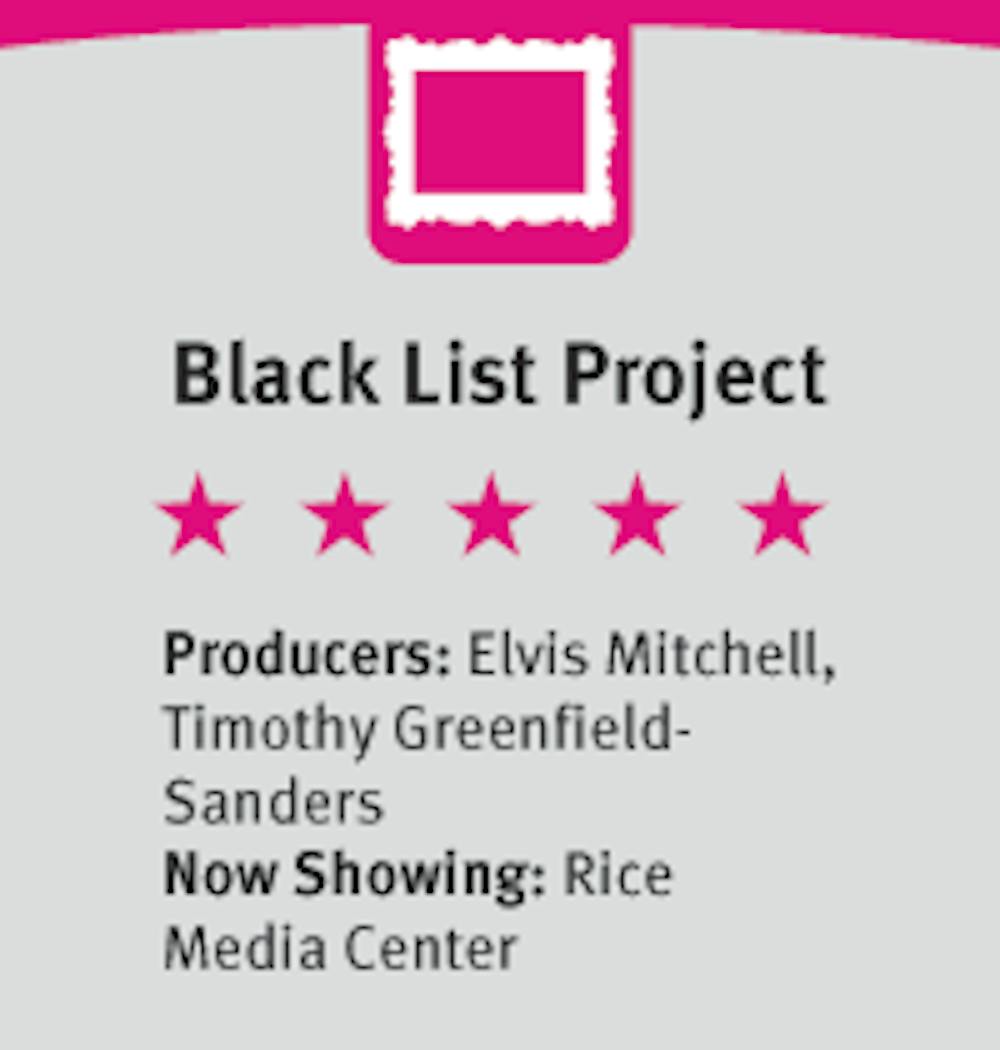"Black List Project" inspiring, evocative documentation of strength

Historically, the term "blacklist" referenced people that were denied privileges and opportunities because of a social standard or prejudice. "The Black List Project," a photographic exhibit and documentary program currently showing at the Rice Media Center in honor of Black History Month, attempts to embody what Elvis Mitchell, co-producer of the project, calls the "black ability to put a positive spin on what has happened." By documenting prosperous and strong African-Americans that have risen to their status from various professions and backgrounds, Mitchell, who is a National Public Radio correspondent and former New York Times film critic, and artist Timothy Greenfield-Sanders attempt to redefine the word "blacklist," which African-Americans have historically occupied.
However, there is more to "The Black List Project," not just for the black community, but also for the world. It really is a "talk to heal," as Greenfield-Sanders describes it: a talk to heal and evoke conversation toward reinterpreting the meaning of being black in America.
"The Black List Project" began in 2008, and since its inception has branched out into a multimedia exhibition including a documentary film, a compilation of interviews, a book, a traveling portrait exhibition and an educational initiative. Greenfield-Sanders is well known for the power that his huge, intimate, gray-scale portraits of world leaders and cultural figures evoke; the question of "what is the story behind the face?" is resonant in each photograph. In "The Black List Project," he allows the voice, strength and struggles of his subjects to be heard.
With a mix of earthy old-school sounds and new school hip-hop, the third and final installment of the film portion of "The Black List Project" is a 30-minute documentary comprised of interviews with successful African-American figures. The newest additions include icons like singer and songwriter John Legend, famous model and author Beverly Johnson, President and C.E.O. of the United Negro College Fund Michael L. Lomax and C.E.O. of Black Entertainment Television Debra L. Lee. The strength of each interviewee is reflected in the music that accompanies his or her words. Together, they tell the stories behind Greenfield-Sanders' stills: stories of struggle, hard work and triumph.
On the surface, the interviews feature African-Americans talking about their respective fields and how they overcame hardship to explain what it means to be black in America. The stories are provocative and relatable to African-American culture and are successful in helping heal the wounds that young African-Americans may feel. However, the majority of what the subjects in "The Black List Project" say is a universal lesson of life.
The project has a large educational component in its mission as a rich and empowering artistic conversation that can foster meaningful discourse and change, if people are willing to listen. Discussing these themes with students of any race can inspire discussions relating to writing, the individual voice, history, identity, mentoring, education, race and achievement, eventually redefining the significance of the "blacklist."
The Black List Project is showing Feb. 4-25. The Media Center will be open from Monday to Friday, 11 a.m. to 5 p.m. and from noon to 5 p.m. on Saturdays; an additional screening will take place Feb. 11. All visits are free to the public. This show is presented as a collaboration between the Humanities Research Center and Rice Public Art, and is sponsored by the Visual and Dramatic Arts Department, the dean of humanities and Rice's HumanArt Program.
More from The Rice Thresher

Andrew Thomas Huang puts visuals and identity to song
Houston is welcoming the Grammy-nominated figure behind the music videos of Björk and FKA twigs on June 27.

Live it up this summer with these Houston shows
Staying in Houston this summer and wondering how to make the most of your time? Fortunately, you're in luck, there's no shortage of amazing shows and performances happening around the city. From live music to ballet and everything in between, here are some events coming up this month and next!

Review: 'Adults' couldn’t have matured better
Sitcoms are back, and they’re actually funny. FX’s “Adults” is an original comedy following a friend group navigating New York and what it means to be an “actual adult.” From ever-mounting medical bills to chaotic dinner parties, the group attempts to tackle this new stage of life together, only to be met with varying levels of success.

Please note All comments are eligible for publication by The Rice Thresher.